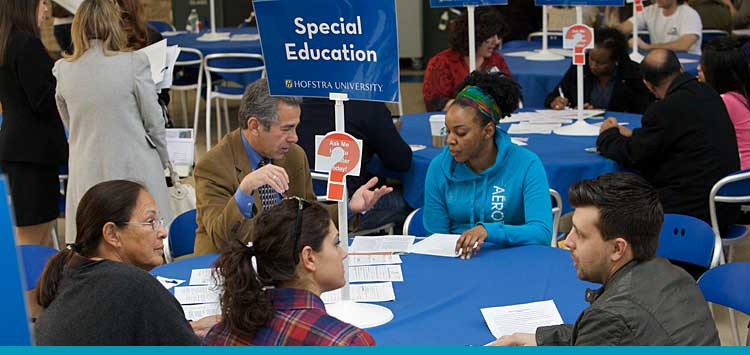Special Education Programs Mission
The mission of Hofstra University Special Education Programs is to prepare professionals in the education of exceptional children and youth who will be scholarly in their academic pursuits and dedicated to reflective, participatory, and collaborative processes within a variety of settings and service delivery models. The Hofstra program is designed to develop ethical scholar- practitioners who will be committed to social justice, capable of working with diverse populations in a variety of social and cultural contexts and serve in a variety of professional roles.
Special education programs at Hofstra reflect a number of theoretical paradigms including diagnostic-prescriptive, behavioral, neuropsychological, social constructivist, and models of inclusive education. These models have generated a course of study that offers a comprehensive professional preparation. They provide the theoretical context for understanding disabling conditions. The assessment, the techniques and strategies used in the education of exceptional children, research-based methodologies and instruction, and program evaluation are major foci of the program. A universal theme woven into the fabric of all programs in special education is an appreciation of diversity and the understanding that the goal of education is to teach every child so that all children can learn.
Special education programs build upon general education and all students must have this prerequisite preparation or complete this requirement as part of a dual certification program. All Master of Science in Education, Special Education teacher preparation programs reflect a field-integrated approach which consists of a minimum of 100 clock hours of field work prior to student teaching. Field experiences are linked to each of the courses that comprise the professional core and include participant observation and field-related projects at early childhood, childhood, middle childhood and adolescent developmental levels, across a variety of school settings including high-need school districts. Students attend parent and professional meetings, as well as work individually with students with disabilities.
